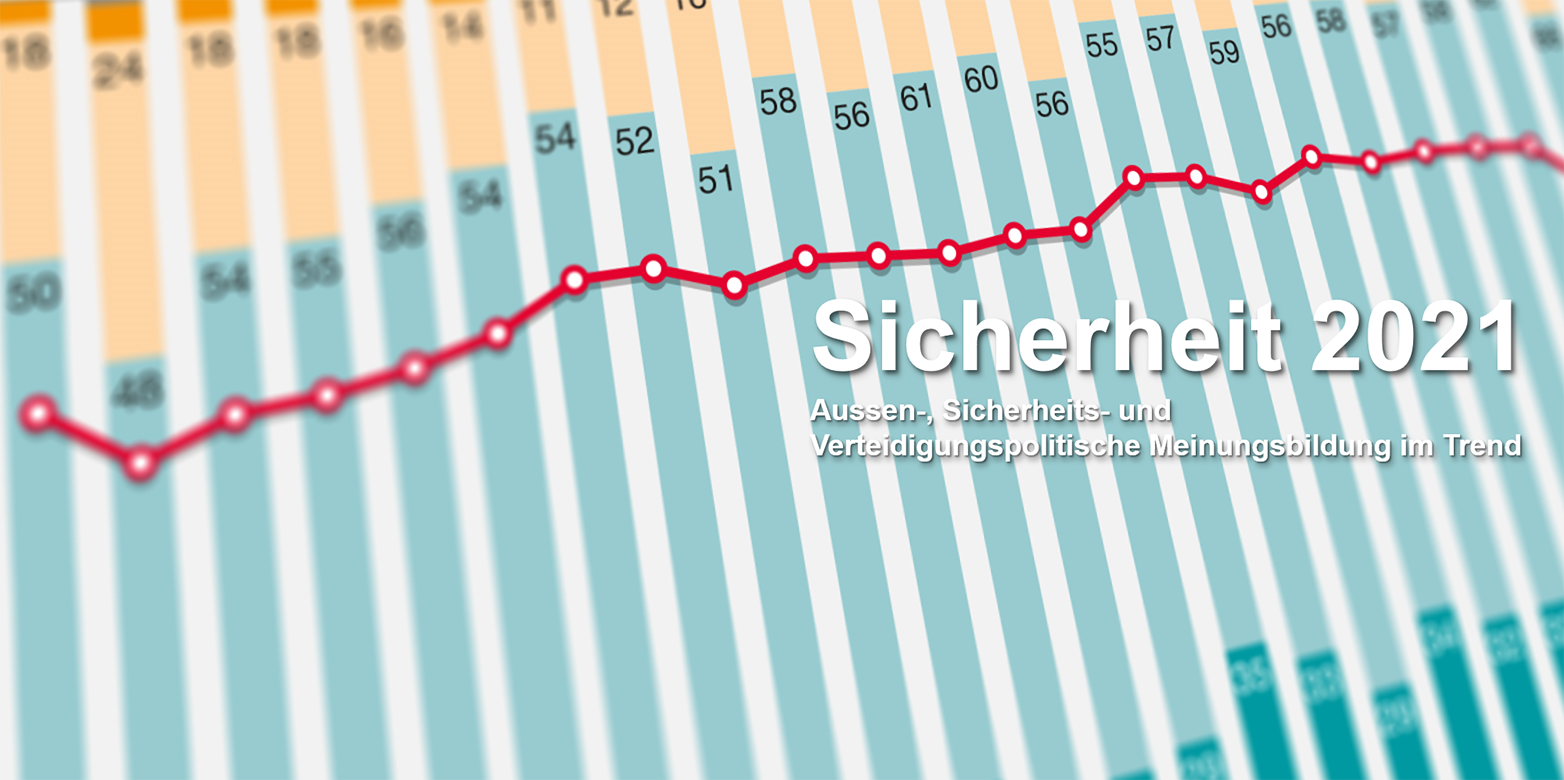Sicherheit 2021. Aussen-, Sicherheits- und Verteidigungspolitische Meinungsbildung im Trend
The Military Academy at ETH Zurich and the Center for Security Studies at ETH Zurich have published the annual survey "Sicherheit 2021". Since 1999, the study has evaluated long-term trends and tendencies in public opinion on foreign, security and defense policy issues in Switzerland.

To the publication (in German)
The survey data for “Sicherheit 2021” was collected between 5 and 26 January 2021. The COVID-19-pandemic and the associated restrictions on public life, Brexit, the storming of the Capitol in Washington (6 Jan. 2021) and the inauguration of the new U.S. President Joe Biden (21 Jan. 2021) may have had an influence on response behavior.
Sense of Security and Perception of Switzerland and the World: In general, Swiss citizens feel very secure. The perception of security in public areas has increased significantly compared to January 2020. A clear majority remains optimistic in respect to the future of Switzerland. Optimism about the future with regard to the global political situation has increased significantly as well. In addition, the Swiss feel hardly threatened in various sectors of society compared with 2015, but rate the probability of a threat from a pandemic, cyberattacks, the spread of fake news or an economic crisis the highest.
Trust in Authorities and Institutions: The trust of the Swiss in the police, science and the courts continues to be the highest. Trust in the Federal Council is also above average, while the Federal Parliament, the Swiss economy and the armed forces score average values. In line with the previous year, the political parties and the media are trusted least.
Neutrality: Support for Swiss neutrality remains unchanged and is almost unanimously supported by the respondents. Recently, a majority of the population supports differential neutrality. The de facto abandonment of neutrality (“if there are no more advantages, then give it up”) enjoys significantly more approval, but it is only called for by a minority. Significantly fewer people agree with the statement that Switzerland can no longer credibly protect neutrality militarily. Neutrality is and remains a value in itself and is still thought to bring more advantages than disadvantages by voters.
Autonomy and Willingness to Open Up: In 2021, the Swiss are more open than in the previous year, but their desire for economic, political and military autonomy remains strong. While there is clear support for economic cooperation with the EU, a majority rejects both establishing closer ties with and joining the EU. Soft forms of cooperation without institutional ties are supported by a majority of the population. Significantly more respondents believe that Switzerland should do more for the UN. Although skepticism toward NATO has decreased significantly, neither closer ties with or joining NATO nor joining a defense alliance with other countries is supported by a majority of the population.
Alternative Service Models and Citizen Service: The willingness to include women in a mandatory service with a free choice between military, community or social service currently finds a clear majority among the Swiss electorate and is the most supported of all the service models surveyed. In general, approval of all service models, except for the model of compulsory service for men only, has increased significantly compared to 2015. The social benefits gained by means of a general compulsory citizen service find approval among the Swiss population. In contrast, the majority of Swiss do not see any negative aspects of such a service.
Attitudes towards the Swiss Armed Forces: The necessity of the armed forces is supported by a clear majority of the Swiss. The population prefers the militia armed forces to professional armed forces and is satisfied with its performance. A small minority calls for the abolition of compulsory military service. With regard to defense spending and the social role of the military, the Swiss have the same attitude as in 2020. The historic highs for the Swiss Armed Forces measured in the follow-up survey in July 2020 fell back to the level of the previous year (January 2020) in January 2021.